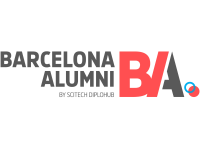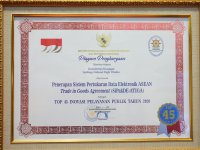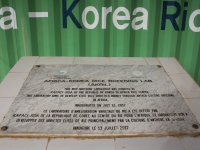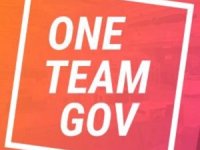The Indonesian Government has initiated “I-Gateway” as Hub for ASEAN Trading Document, enabling electronic data exchange such as certificates of origin to ensure authenticity, reduce paper work and eliminates redundancy. I-Gateway connects both domestically among national agencies and internationally with other countries. It validates and reconciles documents efficiently, to ensure its security as well as business process simplification and harmonization, aiming to higher ease of doing…
Global: Cross-Border Innovation
Case Study
Barcelona Alumni: A digital science-policy nexus connecting international talent to local challenges

In 2020, Barcelona Alumni’s global virtual platform was launched to leverage the network of international talent educated in Barcelona but residing abroad and contribute to feeding scientific evidence into the local policy-making process. By connecting international experts and local challenges, this first-of-its-kind digital platform provides a pioneering approach to policy-making, making it more crowdsourced, evidence-based, replicable, scalable, accountable, and transparent.
Democratic Society have developed a prototype for a Democratic Climate Model to show the impact of putting citizen at the centre of local climate action. It responds to the gap in pan-European efforts to democratise climate action, providing terminology and models to shift cities from a solely technocratic to a democratic approach to climate resilience. It is evolving ‘climate democracy’ discourse with funders, public sector and civil society by scaling local initiatives to European…
KAFACI and AfricaRice jointly developed the Africa Rice Development Partnership project to increase rice productivity in Africa. Using modern breeding technology that shortens the breeding period from 10-15 years to 3-5 years, and by crossing Korean Japonica rice with African varieties, five high-yielding varieties were developed and registered in three countries. The newly released varieties directly benefited farmers, consumers, retailers and policy-makers due to their high yield and quality.
The West Africa Health Informatics Team (WAHIT), based at the West African Health Organization (WAHO), is a team of software developers and health information system experts that provide on-demand technical assistance to countries while building local capacity. Originally founded in the wake of the Ebola outbreak as a proof of concept to test innovative models for building local health informatics capacity, WAHIT evolved into a foundational component of WAHO’s leadership in health in the…
Governments have increasingly adopted remote work due to COVID19. So far, there has been no comparative assessment of how teleworking has affected the public sector. The People in Government Lab, together with an international team of researchers from 12 universities is running a study in Brazil, Colombia, Chile, and the United Kingdom to understand the organisational advantages of teleworking, and to evaluate how behavioural sciences can improve public employees’ wellbeing and performance
Case Study
ASEAN Food Security Information System (AFSIS): Innovation for Agricultural Data Management &…
The Government of the Republic of Korea has implemented an ICT-based agricultural data management system through digitalization and a human capacity building program, which allows innovative data collection, analysis, and sharing in 6 ASEAN member countries. Through this, the governments have improved the paperless work process on agricultural statistics, accumulating the data and human resources for enhancing food security in the ASEAN region.
Case Study
Harnessing the potential of blockchain technology for due diligence and sustainability in cotton…
The United Nations Economic Commission for Europe (UNECE) has developed an open source blockchain system to advance responsible consumers’ choices and business conduct in the cotton market. Through the system, industry actors can track and trace sustainability and circularity claims for cotton made clothing, from field to shelf, based on the UN standard for traceability and transparency of value chains.
Governments traditionally don’t share information and learnings and they are often slow to evolve. OneTeamGov is an innovative community that spans the globe, bringing together individuals who are committed to radically reforming government services and learning from each other. OneTeamGov are an entirely volunteer-run network of individuals who continue to share ideas, project learnings, new ways of working, and continue to push government to be better for all.
Berlin, London, New York and Paris have come together to share emerging innovation and test new approaches to support economic recovery. Through a digital collaboration platform, the initiative is supporting the launch of an open innovation competition to invite passionate people with great ideas to deploy solutions in local test-beds in each city. Innovators will co-develop pioneering solutions to shared COVID-19 challenges, alongside datasets and innovation assets from industry.



